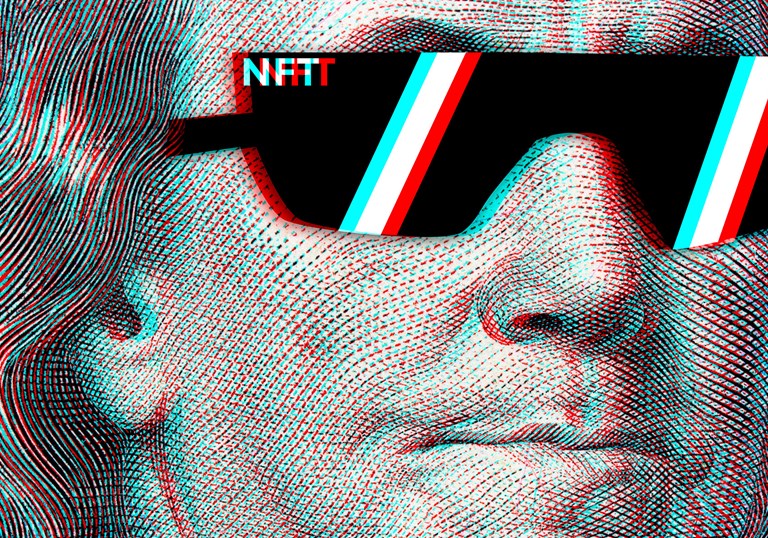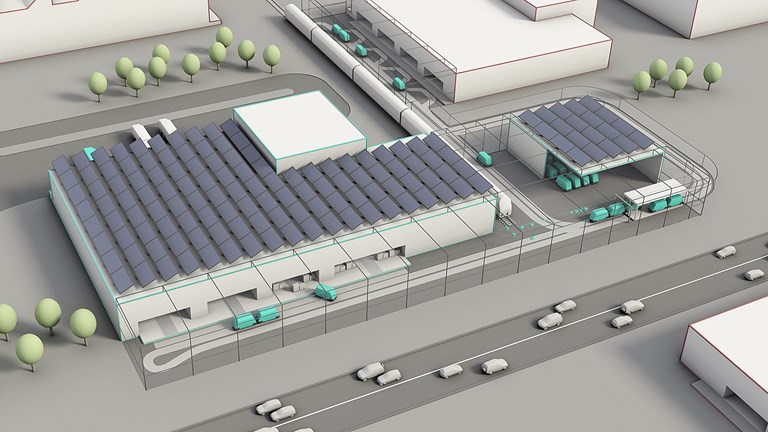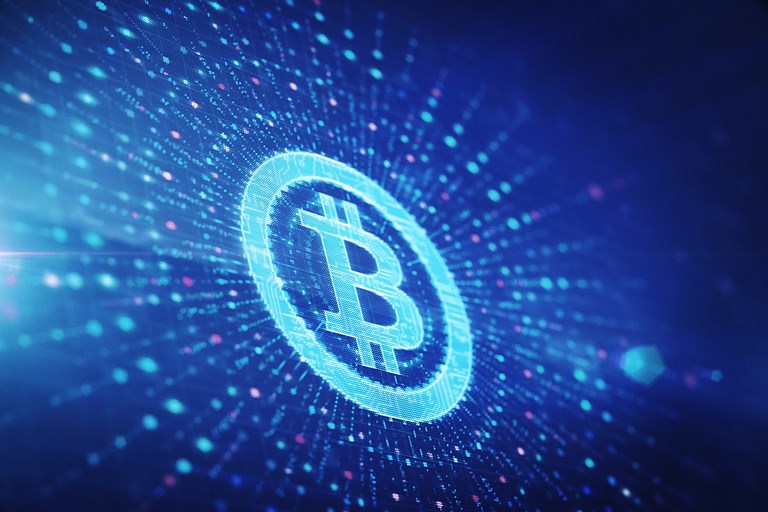
Crypto, Knowing to Invest
The world of cryptocurrencies, like Bitcoin and its sisters altcoins, is divided between those who grew up on bread and computing and see in these decentralised coins a shared finance management system and those who approach them because they hope to make big gains by in-vesting in projects that can increase in value in a short time.
Investing in cryptocurrencies remains a high-risk choice. To better un-derstand the dynamics of this sector, the advice is to study, under-stand the mechanisms behind blockchain, how smart contracts are composed, etc.
Silvia Bossio, who has been involved in the ‘crypto’ market for a few years now and has been increasingly committed to creating communi-ties that can compare experiences in the sector, tells us this.
We interviewed her.
How did you approach the world of Bitcoin?
“My path is particular, it all stems from a curiosity to understand and go beyond. It all started during a computer class, the professor had told us about the dark web and after several attempts I managed to enter the ‘parallel’ internet. I began to wonder why I couldn’t use Euros in the various markets available, I later realised, perhaps too late, that Bitcoin was and is also a form of communication. Between unfounded research on the subject except for a few poorly formatted forums and help from users I found on the net, I decided to buy just a few from the person who had helped me. With hindsight, there remains a bit of bitterness in my mouth, I admit.”
Did you start in the crypto world straight away?
“No, especially in the beginning I made a lot of mistakes that led me to neglect the topic, I could name a series of endless nonsense that translates into: by making mistakes you learn. Then in 2014, I realised that more and more people and companies were taking an interest in the subject, even in Italy. I had created a blog that now, after three rebranding’s, has taken the name “The Timist” and vertically follows industry news. In 2017, the Crypto Bar community was born, a sort of digital bar where we often talk about new more or less innovative pro-jects, test platforms and share feedback even live. It’s always better if accompanied by a good red wine!
I believe that in this market it is essential to share experiences, ex-change opinions, create something useful and be of support to other people as well.”
Is the crypto world a world of speculators?
“I would say that it is clear that 90 per cent of people who invest in cryptocurrencies do so because they hope to quickly increase their capital.
It may be right or wrong, who can say, but from experience, including personal experience, I can
say that being a high-risk market - I am not talking about Bitcoin, but mostly about altcoins and the lack of knowledge of the instruments - the possibility of getting hurt is high, without a minimum of founda-tion or culture on the subject.”
Cryptocurrencies were born with an anarchic ideal, however, many projects today are centralised?
“The world of decentralised finance, which wants to dispense with banking groups through automated forms of management, with blockchain technology at its base, has great possibilities that are being created. Sometimes, how-ever, projects are often governed by companies instead of being de-centralised and 100% distributed with open source technology. The technology can also be used to create centralised products, states and corporations have the resources to do so and are already doing so.
They have already started talking about the digital Euro, and in the process I had a shiver down my spine.”
How is the cryptocurrency market doing?
“2021 was the year of fluff, of speculation, like in 2017 with ICOs. It is absolutely normal that 2022 is the year of awareness, of a return to the fundamentals of Bitcoin. It is physiological and I hope it will lead people to better analyse what the market offers with more focus.”
What developments can the world of blockchain have?
“The potential is enormous. NFT, Dapp and DAO are acronyms that we will hear more and more about.
The idea is to create the possibility of corporate or commercial man-agement that does not require hierarchical rules, even though I still see it more as an experiment that still needs to be refined.”
Are cryptocurrencies environmentally sustainable?
“There is sometimes talk that their production is energy intensive and some have even said that it consumes more energy than Denmark, not considering that it is a globally compared to a country of almost 6 mil-lion inhabitants, not even 1% of the global population.
Today, many mining farms use renewable sources (hydropower, solar, geothermal, etc.) and therefore have little impact in terms of pollu-tion.”
So, no advice on how to invest?
“I have already given it. You have to study and start with the funda-mentals, but I would like to give an incitement: never stop being curious!”
Silvia Bossio
Year of birth: 1991
Profession: Crypto Surfer
She was one of the first women in Italy to follow the technological wave of the Blockchain and Bitcoin.
Thanks to her dissemination through blogs, social networks and com-munities, she has become a point of reference for industry insights.
Founder of The Timist, and Co-Founder of Crypto Bar, where the aim is to inform in a simple way the technological and financial aspects of the cryptocurrency industry.
Since April 2020 he has been community manager of Seed Venture, Chief Operative Officer of the exchange Chainblock since March 2021.
In 2022, she also approached short films, joining the WFSC (WeShort Film Selection Committee).
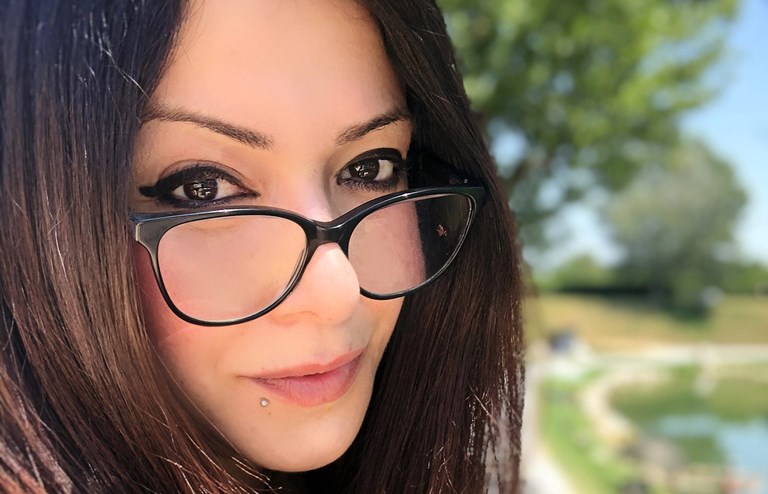
Are blockchain and related cryptocurrencies just commodities for fi-nancial speculators or will they also change the economy? Will they enter our daily lives?
Christian Fazio, one of the founders of the consulting firm Kresius, thinks the answer is yes. We interviewed him.
Is all that glitters gold?
“In the crypto world many companies will go bankrupt, as happened in the 2000s with the Dotcoms, at that time many went bankrupt, but that did not stop Google and company from becoming a world leader, on the contrary. I think that the world of blockchain will substantially enter everyday life. Not only in finance, but also in the real economy.”
How can the economy change?
“The currency we have in our wallets today is a ‘stupid’ currency, which has no added value, except that it is accepted by everyone. It is not traceable, we do not know what it is used for, the central banks put it into the market, with the aim of increasing the economic fly-wheel, but with less than 30 per cent effectiveness. This globalisation has been done quickly and wildly, also favouring producers from na-tions that do not respect the ethical and economic rules of the demo-cratic and free world. With blockchain currencies, all contracts and transfers will be interconnected and immutable, for the entire supply chain. Crypto could be the tool to regularize the market and penalize those who do not respect global rules.”
What relationship do Switzerland and Ticino have with digital as-sets?
“Switzerland has made a very smart choice. It was the first in Europe to incorporate digital assets into its legal system; this made it possible to open banks that handle both traditional products and cryptocurren-cy accounts. Two examples are SEBA bank and Sygnum. Zug is home to Ethereum, a major crypto. Lugano with Plan B is part of Switzer-land’s focus on these assets.”
Who to trust in the crypto world?
“ You can rely on a consultant, but always doubt those who only have certainties. In any case, I would say to hold on to 5% of your portfolio for now, then of course you have to assess your risk appetite. You can start by analysing the projects in which the big banks or the big global investment funds have invested, and then go into the specifics of ap-plication.”
Christian Fazio
Year of birth: 1978
Profession: wealth manager and consultant
Originally from the Bergamo valleys, after his studies he moved to Switzerland in 2002.
For several years he held the position of country manager for an oil service company. He currently works in asset management in Lugano, and is one of the founders with Claudio Grassi of Kresius, a consulting company on blockchain and cryptocurrencies. He continues, when he can, in the winter to work as a ski instructor in St. Moritz at the larg-est and oldest ski school in Switzerland, in order to maintain the inter-national network that the Engadine offers.
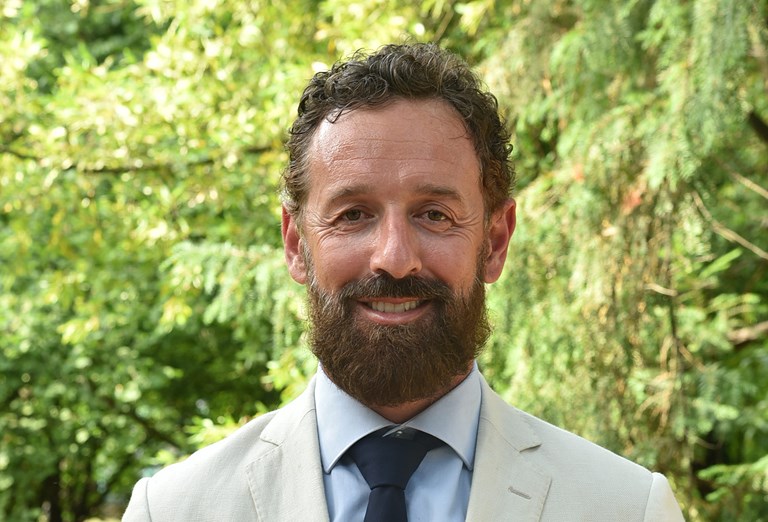
Minimal vocabulary of cryptocurrencies
Blockchain or “chain of blocks”:
is the technology behind Bitcoin and other cryptocurrencies, including Ethereum. It is a digital atabase open to all, without intermediaries or central authority, structured as a chain of blocks. Transactions shall be permanently recorded so that they cannot be falsified, lost or de-leted.
Mining:
means ‘to mine’ and is the founding mechanism of Bitcoin’s Blockchain, also used by other cryptocurrencies. It refers to the resolution of the algorithms needed to authorise Bitcoin transactions, before adding them to the Blockchain.
DeFi:
abbreviation of/ short for “decentralized finance”, “decentralized fi-nance” is an experimental form of financial system that is not based on intermediaries (banks, etc.) and instead uses “smart con-tracts”agreements that are automatically executed on a Blockchain upon the occurrence of predetermined events.
Token and NFT:
the word token indicates a digital asset that has been developed within a blockchain. They are often used to assign a right, such as ownership of an asset or access to a service. If this right cannot be assigned to more than one person, they are called NFT, which stands for ‘non-fungible token’, which in Italian means “non-replicable digital token”.
Altcoin:
cryptocurrencies other than Bitcoin
Stablecoin:
literally “stable currency”, they are digital assets that enjoy the guar-antees and properties typical of cryptocurrencies, but whose price is stabilized with respect to a reference asset such as gold or the dollar.
Playlist


